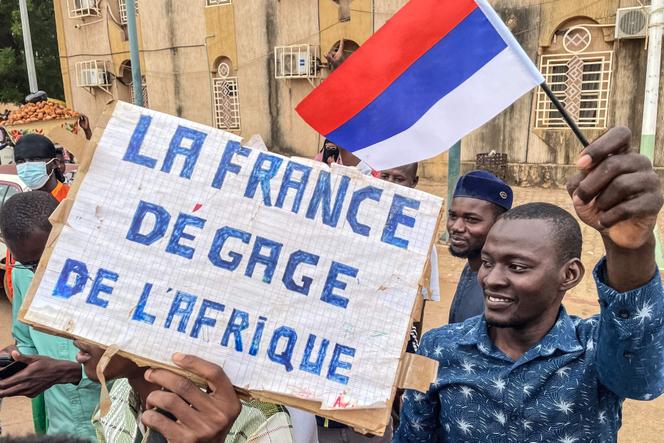


The upheaval, the bitterness of a shameful retreat, the anxiety of a strategic impasse: There's an air of déjà-vu in Niamey's anti-French demonstrations and the hasty evacuation of foreign residents. It's reminiscent of the debacle in Kabul in August 2021, which signaled the defeat of Western intervention in Afghanistan.
The shock was greater at the foot of the Hindu Kush mountains than it was in the Sahel. The jihadist insurgency has not taken power here. Still, the July 26 coup in Niamey, which follows coups in Mali (2020 and 2021) and Burkina Faso (2022) that were also inspired by resentment against the French, is nevertheless accelerating the unraveling of the foreign military posture that was already well underway with French President Emmanuel Macron's announcement of the end of Operation Barkhane. On Thursday, August 3, the Niger junta's annulment of its defense agreements with Paris further precipitated disengagement.
The new rulers in Afghanistan and the Sahel – Taliban insurgents in one case, "patriotic" praetorian guards in the other – have little in common, but they both bring about the end of a cycle. A predominantly Western pattern of international military deployment to stabilize fragile states facing rebellion has terminally come to an end. And its theoretical inspiration – the counterinsurgency doctrine – has been swept away, leaving an entire current of strategic thinking in the dark.
A common methodology is the link between the Afghan and Sahelian theaters. The concept at the heart of the two "anti-terrorist" Western interventions is that of the centrality of populations. It postulates that purely military gains are vain if they are not accompanied by the protection of communities from the influence of insurgents skilled at exploiting the failings of the state.
Jihadists have prospered by playing on the unease of marginalized or alienated groups like the Pashtuns in post-2001 Afghanistan dominated by the Tajiks, the Peuls of the Sahel who are at odds with the Tuareg, and Sunni tribes faced with the rise of Shiite power in Iraq. There is an imperative need to redress feelings of dispossession, to give everyone access to public services and economic development in addition to the security provided by rebuilt national armies destined, in time, to take over from their foreign mentors.
This doctrine, whose distant sources can be traced back to the colonial expeditions of France's colonial generals Hubert Lyautey and Joseph Gallieni, was formulated in its contemporary form by the US's General David Petraeus, the author, in 2006, of "Field Manual 3-24." In the context of the war in Iraq, this vade mecum has become the bible of counter-insurgency. Petraeus, who went on to lead the international force in Afghanistan (2010-2011), made no secret of his debt to a French soldier, Lieutenant Colonel David Galula (1919-1967).
You have 63.85% of this article left to read. The rest is for subscribers only.
